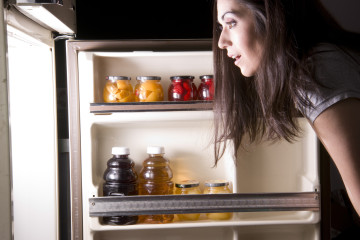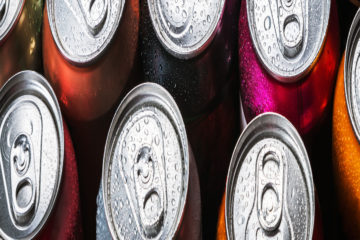

CITATION & LINK: Nutrients 2020, 12, 3408; doi:10.3390/nu12113408 AUTHORS: Ahmad SY, Friel J and Mackay D. REVIEWER: CCC Staff OBJECTIVE: To determine the effect of sucralose and aspartame consumption on gut microbiota composition using realistic doses of non-nutritive sweeteners (NNS). BACKGROUND: In recent years, research interest has focused on...
Read More
CITATION & LINK: Nutrients, 2020; 12(4), 1112 AUTHORS: Sofia Pugnaloni, Sonila Alia, Margherita Mancini, Vito Santoro, Alice Di Paolo, Rosa Anna Rabini, Rosemaria Fiorini, Jacopo Sabbatinelli, Mara Fabri, Laura Mazzanti, and Arianna Vignini REVIEWER: Robyn Flipse, MS, MA, RDN OBJECTIVE: To investigate a possible link between diabetes and individual taste...
Read More
By Keith Ayoob, EdD, RDN, FAND -- I don’t mean sugar, or what we think of as “sweets”, like pastries, candy, cookies, and the like. I mean the entire phenomenon of sweet taste. Sugar per se, including white sugar, brown sugar, honey, corn syrup, and all the sugar equivalents like...
Read More
TITLE: Variations in Marginal Taste Preference Perception by Body Mass Index Classification: A Randomized Controlled Trial CITATION & LINK: J Acad Nutr Diet. 2020; 120(1):45-52 AUTHORS: Aaron C. Miller, Linnea A. Polgreen, Elena M. Segre, Philip M. Polgreen REVIEWER: Robyn Flipse, MS, MA, RDN Objective To model taste perceptions in...
Read More
TITLE: Obesity is associated with altered gene expression in human tastebuds CITATION & LINK: IntJ Obes. 2019; 43:1475-1484 AUTHORS: Nicholas Archer, Jan Shaw, Maeva Cochet-Broch, et al (4) REVIEWER: Robyn Flipse, MS, MA, RDN Objective To assess if there are underlying fundamental differences in the physiology of taste tissue between...
Read More
Some Changes Reported in Lipoprotein Concentrations but More Research is Needed Evidence from observational studies suggests that there is a positive association between added sugar intake and risk of cardiovascular disease (CVD).1-3 To help minimize this risk, 100% fruit juice and low- and no-calorie sweetened beverages (LCSB) are commonly-used alternatives...
Read More